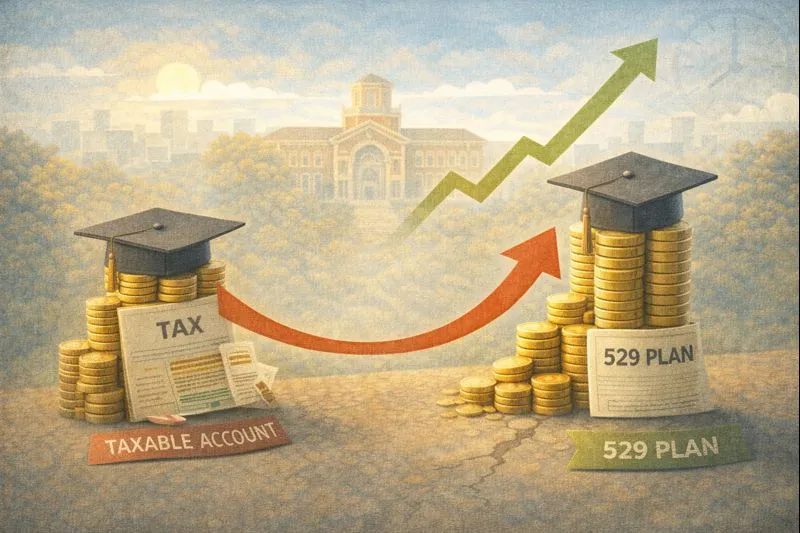Virginia Income Tax: Essential Information for Residents

Virginia’s income tax system can seem complex, but with the right strategies, you can navigate it efficiently, maximize savings, and ensure compliance. Whether you’re filing for the first time or optimizing a seasoned strategy, understanding tax brackets, deductions, and available credits is essential for a smooth tax season.
Key Takeaways
- Progressive Tax System: Virginia taxes income at rates between 2% and 5.75%, depending on your income level (accessed November 2024).
- Available Credits and Deductions: Senior subtractions, Earned Income Tax Credit, and more can significantly reduce your tax bill.
- Deadlines and Penalties: Virginia state income taxes must be filed by May 1st each year to avoid penalties. If May 1st falls on a weekend or holiday, the deadline is extended to the next business day. While an automatic six-month extension to file (until November 1st) is available, any taxes owed must still be paid by May 1st to avoid penalties and interest charges.
- Strategies for Optimization: From filing tips to choosing the right platform, learn how to file smarter and save more.
How Does Virginia’s Income Tax System Work?
Virginia uses a progressive tax system, meaning the more you earn, the higher the percentage of your income you pay in taxes. However, only the portion of income within each bracket is taxed at that rate, which can help lower your overall effective tax rate.
2026 Virginia Tax Brackets
Hypothetical Example:
Let’s calculate the tax for a Virginia resident earning $50,000 in taxable income:
- First $3,000 taxed at 2% = $60
- Next $2,000 taxed at 3% = $60
- Next $12,000 taxed at 5% = $600
- Remaining $33,000 taxed at 5.75% = $1,897.50
Total Tax Owed: $2,617.50
Understanding Your Effective Tax Rate
While the highest tax bracket for incomes over $17,000 is 5.75%, your effective tax rate (the percentage of your total income paid in taxes) is often lower due to the tiered structure. For someone earning $50,000, the effective rate is closer to 5.23%, illustrating the value of Virginia’s progressive system.
Analyze tax-loss harvesting scenarios and portfolio-level tax impact.
Who Needs to File Virginia State Taxes?
If you live, work, or earn income in Virginia, you may need to file a state tax return. Here’s how to know:
Full-Year Residents
- Single filers: Must file if annual income exceeds $11,950.
- Married joint filers: Must file if income exceeds $23,900.
Part-Year Residents
- Must file for the portion of the year you lived in Virginia. Calculate taxable income by prorating your annual earnings based on the months spent in the state.
Hypothetical Example: If you earned $72,000 in a year but lived in Virginia for six months, your taxable income is:
72,000×612=36,000
Non-Residents
If you earned income from Virginia sources, such as rental properties or employment within the state, you may need to file. Residency status directly affects how income is allocated and taxed. Misclassifying residency is a common source of filing errors.
Important Deadlines
- Tax Filing Deadline: Virginia state income tax returns are due by May 1st each year. If May 1st alls on a weekend or holiday, the deadline is extended to the next business day.
- Extension Filing Deadline: Taxpayers automatically receive a six-month extension to file, moving the deadline to November 1st (requires request).
- Payment Deadline: Taxes owed must still be paid by May 1st to avoid penalties.
Penalties for Late Filing
Virginia imposes strict penalties for late payments:
- 6% per month on unpaid balances (up to 30%), plus daily interest.
- For a $1,000 unpaid tax bill, three months of penalties could total $180, with additional interest charges.
Maximizing Savings: Credits and Deductions
Virginia offers several programs to reduce your taxable income or the amount you owe. Knowing which ones apply to you can result in significant savings.
1. Standard Deduction
- $8,000 for single filers (up from $4,500)
- $16,000 for married couples filing jointly (up from $9,000).
2. Earned Income Tax Credit (EITC)
This credit benefits low- to moderate-income residents. Virginia’s EITC is calculated as a percentage of the federal credit, potentially reducing your state tax liability significantly.
3. Credit for Low-Income Individuals
This credit is available for residents who meet specific income thresholds, reducing their overall tax burden.
4. Senior Subtraction
Taxpayers aged 65 or older can subtract up to $12,000 from their income, depending on total income levels.
Filing Tips for Virginia Residents
1. Choose the Right Filing Method
- Online Filing: Use platforms like Virginia Revenue Online for faster processing, reduced errors, and easy refund tracking.
- Paper Filing: Download and complete Form 760, but note that paper filings take longer to process.
2. Optimize Your Refund
- Double-check your eligibility for credits and deductions.
- Use a tax calculator to estimate your refund before filing.
For even further optimization, tools like PortfolioPilot.com can enhance your tax planning. PortfolioPilot.com analyzes thousands of potential tax-loss harvesting scenarios and highlights the best opportunities for saving on taxes. It simplifies understanding of capital gains, fees, and taxes, allowing you to implement effective strategies with little effort. By applying these personalized recommendations, you could maximize your refund and savings. Try it now with a 10-day free trial.
3. Plan for Part-Year Residency
- Keep detailed records of your income and the months spent in Virginia to accurately prorate your taxable income.
4. Pay Taxes On Time
- Even if you request an extension, pay estimated taxes by May 1st to avoid penalties.
How optimized is your portfolio?
PortfolioPilot is used by over 40,000 individuals in the US & Canada to analyze their portfolios of over $30 billion1. Discover your portfolio score now:






